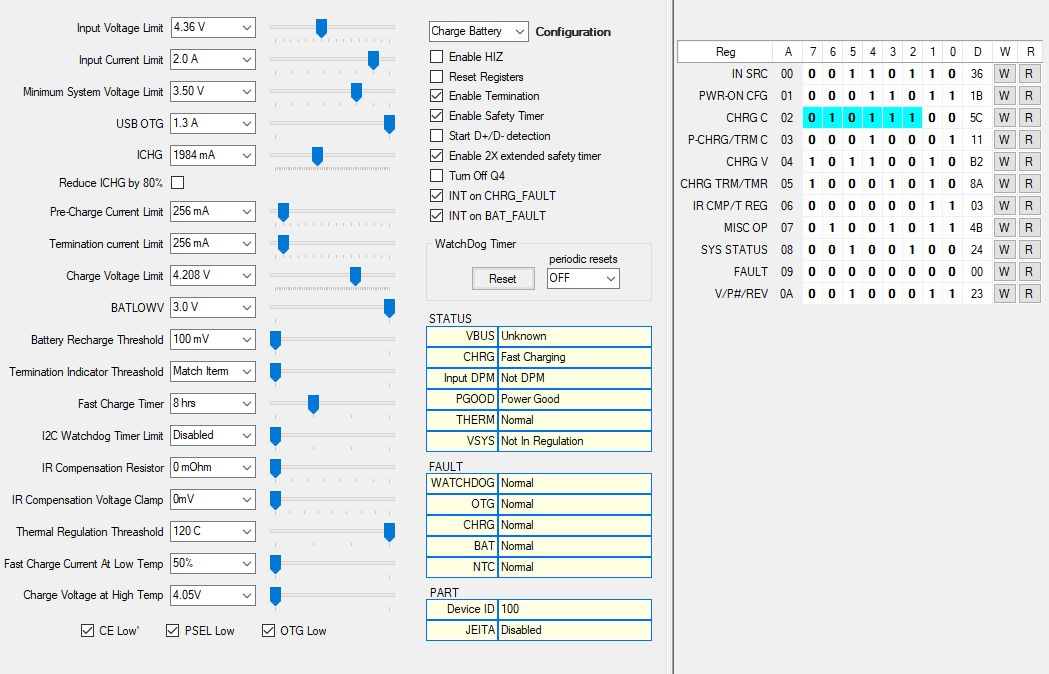Hi there, I'm trying to verify that the BQ24195L works as expected in our system, however I'm running into issues with getting the battery to charge at the correct speed. The battery will charge at 500mA when connected to a USB 3.0 port on a laptop, monitor, dock, etc. The battery will charge at 100mA when connected to a 2.0A cellphone charger or directly to a power supply.
Please help me debug / understand why it is unable to charge faster in both scenarios. I would expect more from a USB 3.0 port, and certainly more from a cellphone wall charger.
- Battery is 3.7V
- ILIM is set with 357 ohm resistor (should allow 1.5A)
- Charge current register is set to 2.2A



